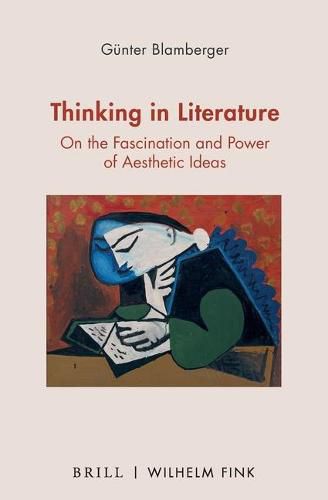Readings Newsletter
Become a Readings Member to make your shopping experience even easier.
Sign in or sign up for free!
You’re not far away from qualifying for FREE standard shipping within Australia
You’ve qualified for FREE standard shipping within Australia
The cart is loading…






M'illumino/d'immenso - I’m lit/with immensity is Geoffrey Brock’s translation of Giuseppe Ungaretti’s poem Mattina. In the poem’s minimalism, Ungaretti points to the maximal: the richness of poetry’s expressive possibilities and the power of thinking in literature. This book addresses the fascination of readers to transcend the boundaries of their own in fiction, and literature’s capacity, according to Kant, even to evoke, with the help of the development of aesthetic ideas, representations that exceed what is empirically and conceptually graspable - in case studies about myths of creativity, images of death and the beyond after the ‘death of God’, of the soul, of melancholy as the dark ground of genius, of metamorphoses of both evil and good, of ecstasy, of the economy of self-sacrifice, of the art of resistance, and, among others, about figurations of biography and the portrait as approaches to singularity, what is particular and cannot be fully subsumed to any universality.
$9.00 standard shipping within Australia
FREE standard shipping within Australia for orders over $100.00
Express & International shipping calculated at checkout
M'illumino/d'immenso - I’m lit/with immensity is Geoffrey Brock’s translation of Giuseppe Ungaretti’s poem Mattina. In the poem’s minimalism, Ungaretti points to the maximal: the richness of poetry’s expressive possibilities and the power of thinking in literature. This book addresses the fascination of readers to transcend the boundaries of their own in fiction, and literature’s capacity, according to Kant, even to evoke, with the help of the development of aesthetic ideas, representations that exceed what is empirically and conceptually graspable - in case studies about myths of creativity, images of death and the beyond after the ‘death of God’, of the soul, of melancholy as the dark ground of genius, of metamorphoses of both evil and good, of ecstasy, of the economy of self-sacrifice, of the art of resistance, and, among others, about figurations of biography and the portrait as approaches to singularity, what is particular and cannot be fully subsumed to any universality.